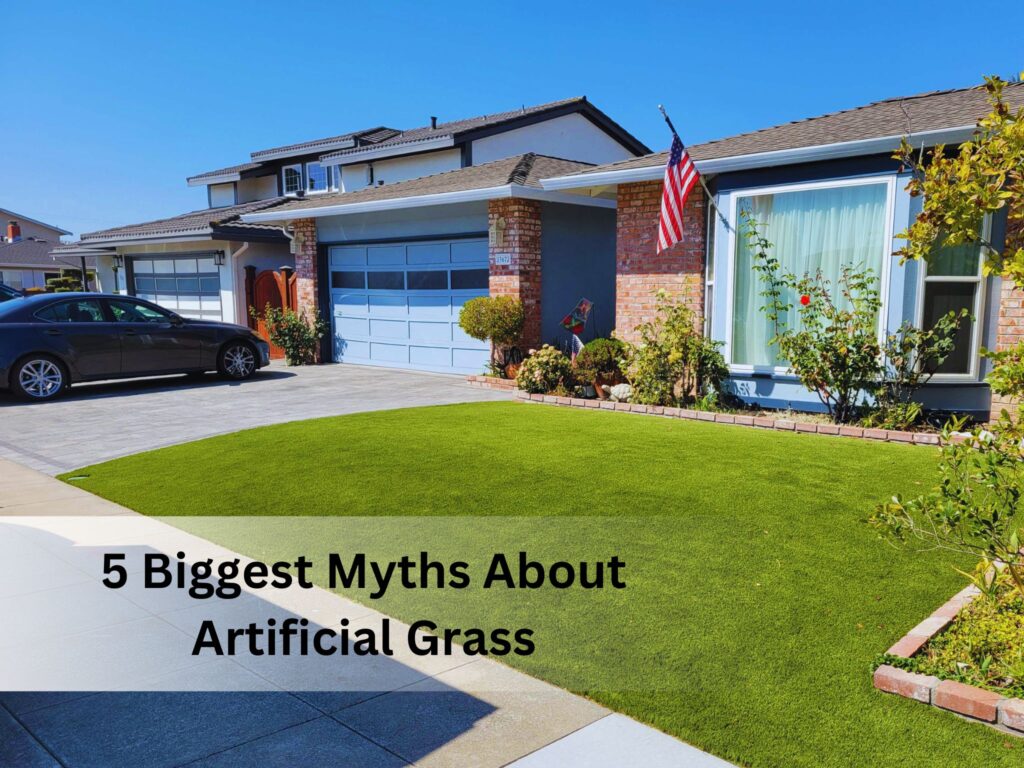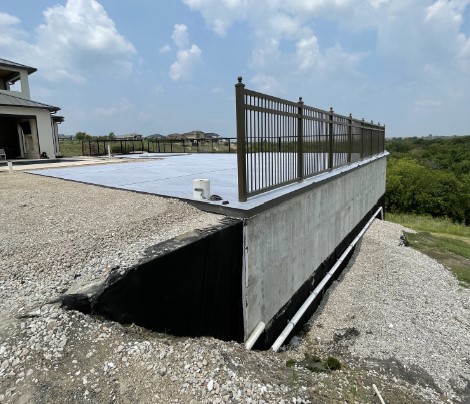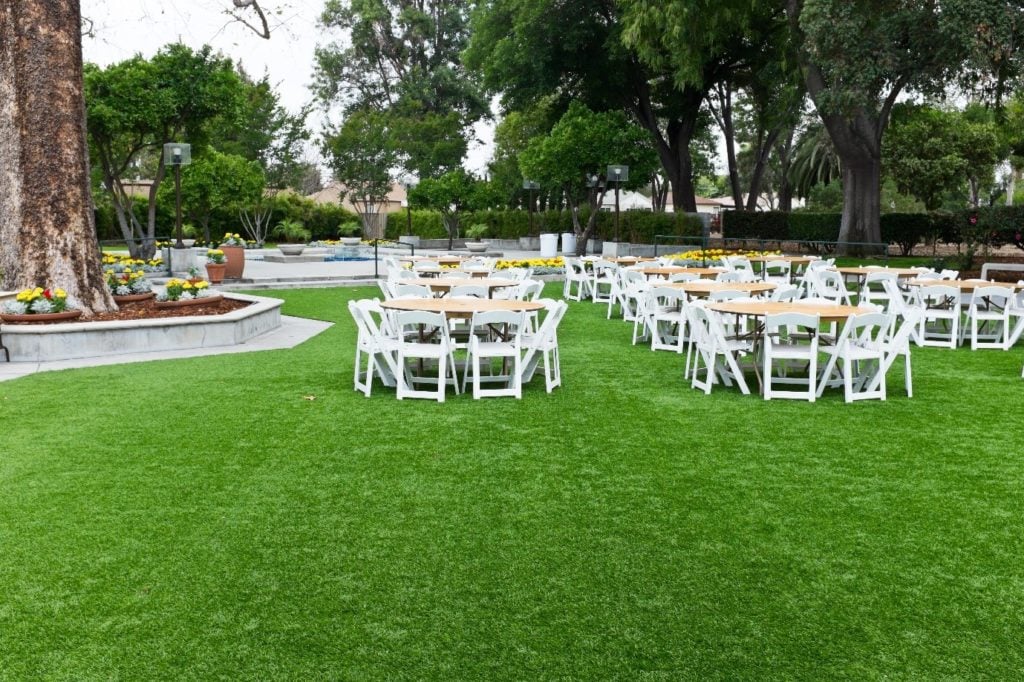Artificial grass has soared in popularity across Dallas in recent years. In fact, we’ve installed synthetic turf all over the area, from Fort Worth to Denton, Plano, Arlington, and beyond. We’re delighted that so many people are discovering the benefits of turf!
There are still stubborn myths surrounding this product though, and we break down some of the biggest below:
Myth #1: Artificial Grass Looks Fake
Modern artificial grass comes in various textures and blade lengths, mimicking the natural look of different grass types. High-quality options even incorporate diverse shades and color variations, creating a realistic visual. Stepping barefoot on newer generations of synthetic grass feels surprisingly soft and springy, far from the stiff mats of the past.
See for yourself — browse through our residential artificial turf gallery and see how realistic artificial grass can be.
Myth #2: Synthetic Grass Is Only for Sports Fields
While synthetic turf remains popular for high-traffic sports areas, it also works beautifully in residential and commercial spaces. We’ve installed artificial turf around pools, in backyards and front lawns, roof decks, patios, playgrounds, and many other places.
It’s so versatile, we’re able to install it on almost any surface. Soil, brick, concrete, asphalt, tile, even up walls – you can “grow” grass virtually anywhere with synthetic turf.
Myth #3: Artificial Grass Gets Too Hot
It’s true that synthetic turf can get a bit hotter than real grass, since it doesn’t have moisture-retaining soil to keep it cool. However, it stays way cooler under the sun than concrete and other hardscape.
Here at Synthetic Grass DFW, we’ve also refined our techniques to help lower the surface temperature of our artificial grass installations. We incorporate these elements and more:
- Base Preparation: To prepare the area for synthetic turf, the ground beneath the artificial grass is excavated and leveled. A compacted stone or gravel base is often installed, allowing for better drainage and air circulation. This prevents heat from being trapped directly under the artificial turf.
- Weed Barrier: A weed barrier fabric is often laid on top of the base. This prevents vegetation growth, which could potentially trap heat and moisture, contributing to higher temperatures.
- Drainage System: In some cases, especially for larger artificial grass areas, a drainage system is installed beneath the layers. This allows for rapid water runoff, preventing puddles and stagnant heat pockets.
We love geeking out about this stuff, so don’t hesitate to ask more questions by sending us a message or during your free consultation!
Myth #4: Artificial Grass Doesn’t Drain Well
Well-designed artificial grass excels at drainage, and in most cases, much better than real grass. During installation, care is taken to create an angled base and drainage system beneath the turf. Materials like gravel and sand promote rapid water flow away from the grass into the underlying soil.
The synthetic grass itself also boosts drainage. Polypropylene backing allows water to quickly filter through perforated holes to the base below. Again, our team can also design a custom drainage system if your installation requires it.
Myth #5: Synthetic Turf Is Bad for the Environment
While initial production involves plastic, high-quality artificial grass can last for decades, significantly reducing the environmental impact compared to constantly maintaining natural grass.
Homeowners with synthetic grass can also slash landscape water use, personally contributing to crucial conservation efforts. Synthetic turf also eliminates the need for toxic pesticides, fertilizers and herbicides that can pollute ground and runoff water.
Learn More about Artificial Turf!
Got more questions about artificial turf? We’d love to hear from you. Call us at 214-972-0449 or send us a quick message to book your free consultation.




